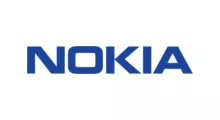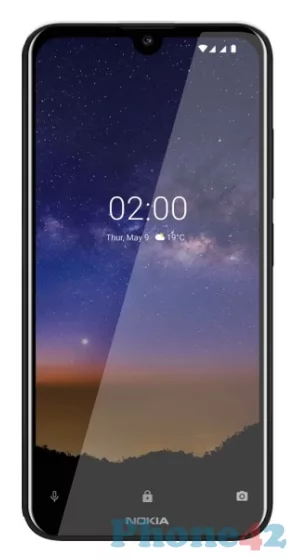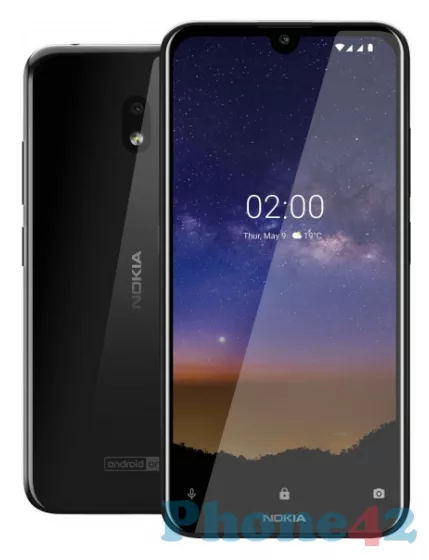
Nokia 2.2: Pros and Cons
Nokia announced the launch of the 2.2 smartphone in 2019. The manufacturer is offering this smartphone with 5.71 inch IPS display, Mediatek Helio A22 MT6765 SoC, and 2 GB of RAM. The smartphone runs on the Android OS v9.0 Go Edition (Pie) operating system. This phone uses a high resolution 720 x 1520 px, 5.71 inch IPS display. This phone has only one rear-camera (13 MP, 4160 x 3120 px, autofocus) on its back for photos and videos. Let's explore what sets this device apart.
Table of Contents
- Nokia 2.2 specifications
- Weight, dimensions, colors
- System, chipset, performance
- Display type, size, resolution
- Memory, storage
- Cameras, flash
- Connectivity, network, wireless
- Battery type, capacity, charger
- Features, sensors, specials
- Verdict, pros and cons
This article shares our personal experiences and thoughts about using the Nokia 2.2 smartphone. We hope to offer helpful insights to others interested in this device. The specifications below are from the official manufacturer data, but we also consider user reviews. If you've seen any mistakes or things missing in these specifications, please let us know.

Nokia 2.2 specifications
| Brand | Nokia |
|---|---|
| Name | 2.2 |
| Model | 22 |
| Release date | 2019 |
Weight, dimensions, colors
| Weight | 5.4 oz |
|---|---|
| Dimensions | 5.75 x 2.78 x 0.37 inch |
| Colors | black, gray |
| SIM type | Nano SIM |
The weight of the Nokia 2.2 is still considered to be lightweight and portable. Smartphones use a Nano SIM as a subscriber identity module (SIM), which is a chip card.
System, chipset, performance
| OS version | Android OS v9.0 Go Edition (Pie) |
|---|---|
| SoC | Mediatek Helio A22 MT6765 |
| CPU | Quad-core 2 GHz Cortex-A53 |
| GPU | PowerVR GE8300 |
The Nokia 2.2 comes with Android OS v9.0 Go Edition (Pie) out of the box. Android is an open-source operating system. This means the source code is free to the public. The quad-core mobile CPU can provide fast and efficient performance for mobile games. Many consider PowerVR GPUs to highly compete with other leading mobile GPUs.
Display type, size, resolution
| Display type | IPS |
|---|---|
| Screen size | 5.71 inch |
| Resolution | 720 x 1520 px |
| Multitouch support | yes |
People know IPS for its wide viewing angles. It also has accurate color reproduction. The 5.71 inch display make this smartphone pocket-friendly. The display size is the diagonal distance from one corner of the screen to the opposite corner.

Memory, storage
| RAM | 2 GB |
|---|---|
| Internal storage | 16 GB |
| Memory card slot | microSD |
The smartphone has 2 GB of RAM. It can run many apps at once without much lag or slowness. Having more RAM alone does not guarantee better performance. If you use your smartphone for basic tasks like calling, texting, and browsing the web, 32GB may be sufficient for your needs. You can expand the internal storage of the 2.2 (16 GB) by using a compatible microSD card.
Cameras, flash
| Main camera | 13 MP, 4160 x 3120 px, autofocus |
|---|---|
| Flash | LED |
| Selfie camera | 5 MP |
You may have budget limits. Or, you may prioritize other features over a multi-camera system. If so, this single camera setup can be a good choice. The 2.2 does not have optical image stabilization (OIS).
Connectivity, network, wireless
| GSM 2G bands | 850 / 900 / 1800 / 1900 |
|---|---|
| Network coverage | 2G / 3G / 4G |
| Wi-Fi | Wi-Fi 802.11 a/b/g/n |
| Bluetooth | v4.2, A2DP |
| GPS | A-GPS, GLONASS |
| NFC | no |
| FM radio | yes |
| USB | microUSB 2.0 |
| Headphone | 3.5 mm jack |
The Nokia 2.2 supports 4G/LTE networks. This Nokia phone can connect to Wi-Fi networks at home, at work, or in public places. You can use Bluetooth to connect your 2.2 smartphone to many Bluetooth devices. This phone has a built-in GPS receiver. The phone isn't NFC (Near Field Communication) capable. NFC is not essential for basic phone functionality, but it can be useful. The 3.5 mm headphone jack allows you to connect wired headphones or earphones to the device.
Battery type, capacity, charger
| Type | Li-Po 3000 mAh |
|---|
The Li-Po 3000 mAh battery gives the smartphone a good battery backup. The lithium polymer (Li-Po) battery is a light-weight, rechargeable battery. You can simply buy a new battery from the open market and interchange it by yourself.
Features, sensors, specials
| Sensors | accelerometer, light, proximity |
|---|---|
| Specials | Dual SIM |
Today, smartphones come with many sensors. They help make the user experience better. The accelerometer provides information about the smartphone's movement in three axes. These are X (horizontal), Y (vertical), and Z (depth). The light sensor is a type of sensor in a smartphone. It lets the phone measure light intensity around the device. Dual SIM is great for businesses. They want to give staff a device with separate numbers and bills for personal and business use.
Verdict, pros and cons
Every phone has its strengths and weaknesses, and this Nokia phone is no exception. As with any device, there are aspects that shine and others that fall short. By examining both sides, we can paint a complete picture of what this phone has to offer. Let's explore its standout features and areas for improvement. Remember, this is just my opinion, and yours might be different.
Pros
- microSD slot
- Dual SIM support
Cons
- insufficient internal storage
- single camera setup
- no OIS function
- no 5G support
- no NFC feature
- no Type-C USB port
- low-capacity battery
- no digital compass
- no fingerprint reader
Please let us know if you find incorrect information or something isn't working. Also, tell us if you have a suggestion for improvement.
 I'm Lucas Bradley, the founder of the Phone42.com site. I love technology, especially smartphones, and I've been working with tech stuff for more than 20 years. This means I've seen a lot of changes and have learned a bunch about what makes a good phone. On Phone42.com, I look at all kinds of phones. They can be from big, well-known companies or new ones trying to make their mark. I want to help people understand what's new and cool in the world of smartphones, in a way that's easy to get.
I'm Lucas Bradley, the founder of the Phone42.com site. I love technology, especially smartphones, and I've been working with tech stuff for more than 20 years. This means I've seen a lot of changes and have learned a bunch about what makes a good phone. On Phone42.com, I look at all kinds of phones. They can be from big, well-known companies or new ones trying to make their mark. I want to help people understand what's new and cool in the world of smartphones, in a way that's easy to get.